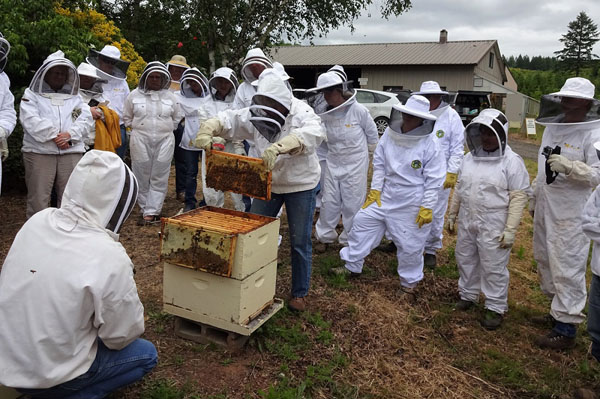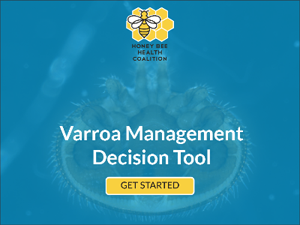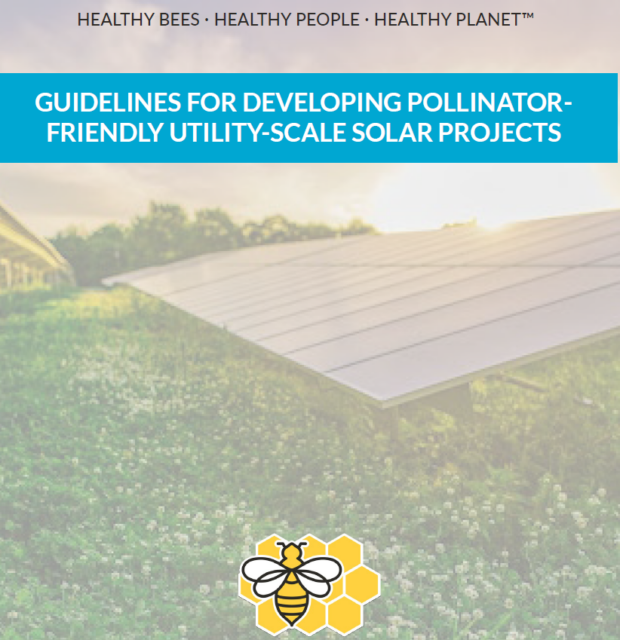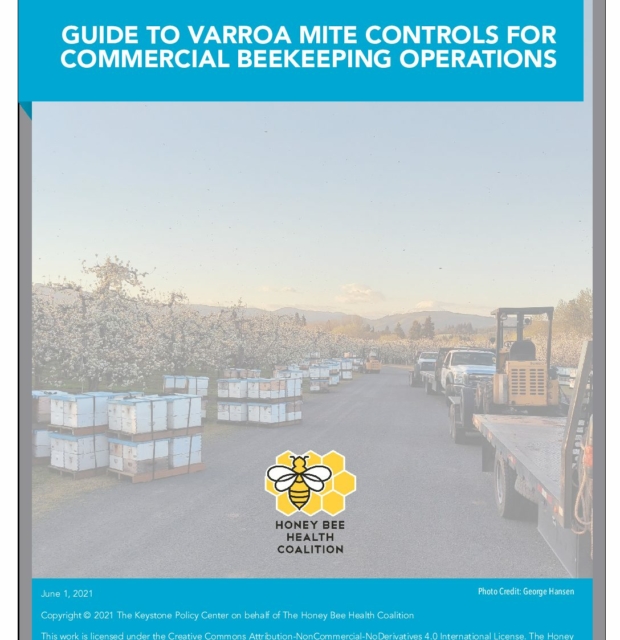News
New Beekeeper BMPs & Varroa Tool
Honey Bee Health Coalition releases two new resources to help beekeepers make informed hive management decisions
Guide includes information on reducing pesticide exposure, treating pests and diseases and ensuring adequate nutrition
The Honey Bee Health Coalition unveiled two new resources for beekeepers today:
- a best management practices guide for hive health and
- a decision support tool for taking on the honey bee’s most dangerous parasite.
Learn About Beekeeping Best Practices
An expert team of beekeepers, entomologists, extension and regulatory agents, bee suppliers and apiary inspectors produced and reviewed Best Management Practices for Hive Health: A Guide for Beekeepers, which is available for free download.
“The guide includes information about safety considerations, apiary setup and maintenance, pesticide exposure, pests and diseases, queens and nutrition,” said Dewey Caron, University of Delaware emeritus professor of entomology and wildlife ecology, Oregon State University affiliate professor, and the guide’s lead author. “These best management practices will be updated periodically to ensure beekeepers have access to the best possible resources and strategies.”
American Honey Producers Association vice president Chris Hiatt praised the guide.
“Learning and understanding these techniques is vital for beekeepers, and there is a lot of questionable information out there that’s not based on the latest best practices,” Hiatt said. “The guide both promotes in-hive practices that strengthen bee populations and encourages beekeepers to communicate and work with farmers and landowners to improve bee health. The guide and other Coalition tools help beekeepers get their mite levels under control, which in turn helps neighboring bee yards by reducing mite drift.”
Kentucky state apiarist Tammy Horn Potter said, “There is a saying in the beekeeping world: you’ll be a beginner for 20 years. However, these best management practices can shorten that learning curve exponentially. The guide helps all beekeepers — from hobbyist to commercial — establish and maintain the conditions necessary for healthy hives. It is full of photos and graphics, and each chapter is followed by a summary of ‘Key Points to Remember’ as well as resources should beekeepers seek more information.”
 Explore the Varroa Management Decision Tool
Explore the Varroa Management Decision Tool
The Coalition also launched a free, mobile-friendly tool to accompany its Tools for Varroa Management guide. The Varroa guide, first released in 2015 and now in its seventh edition, helps beekeepers implement practical techniques to control the Varroa mite, one of the honey bee’s most destructive pests.
“The Varroa guide is downloaded thousands of times every month, but in talking to beekeepers, we find many are still confused about which treatments are right for their situation and conditions,” said Mary Reed, Texas Apiary Inspection Service chief apiary inspector. “With this new tool, they can input their hive conditions and management preferences and receive a list of techniques and treatment options that fit. They can then study their options using the provided information and videos before making a decision.”
Reed joined James Wilkes, HiveTracks CEO and chief science and technology officer, to help the Coalition develop the tool.
“The tool guides beekeepers through five questions to determine relevant treatment options and provides information they need if they don’t know the answers,” Wilkes said. “As the beekeeping community moves toward the best practice of regularly monitoring and managing Varroa, this tool will help all beekeepers make wise treatment choices.”


About the Honey Bee Health Coalition
The Honey Bee Health Coalition brings together beekeepers, growers, researchers, government agencies, agribusinesses, conservation groups, manufacturers, brands and other key partners to improve the health of honey bees and other pollinators. Its mission is to collaboratively implement solutions that help achieve a healthy population of honey bees while also supporting populations of native and managed pollinators in the context of productive agricultural systems and thriving ecosystems. The Coalition focuses on accelerating the collective impact of efforts in four key areas: forage and nutrition; hive management; crop pest management; and communications, outreach and education.
The Honey Bee Health Coalition is a project of the Keystone Policy Center, a nationally recognized nonprofit that brings together diverse stakeholders to find collaborative, actionable solutions to public policy challenges.

